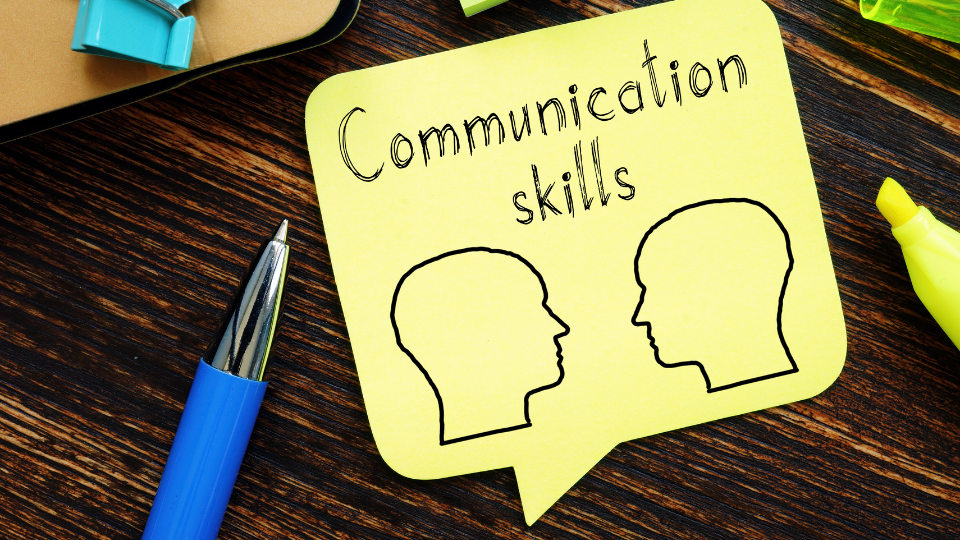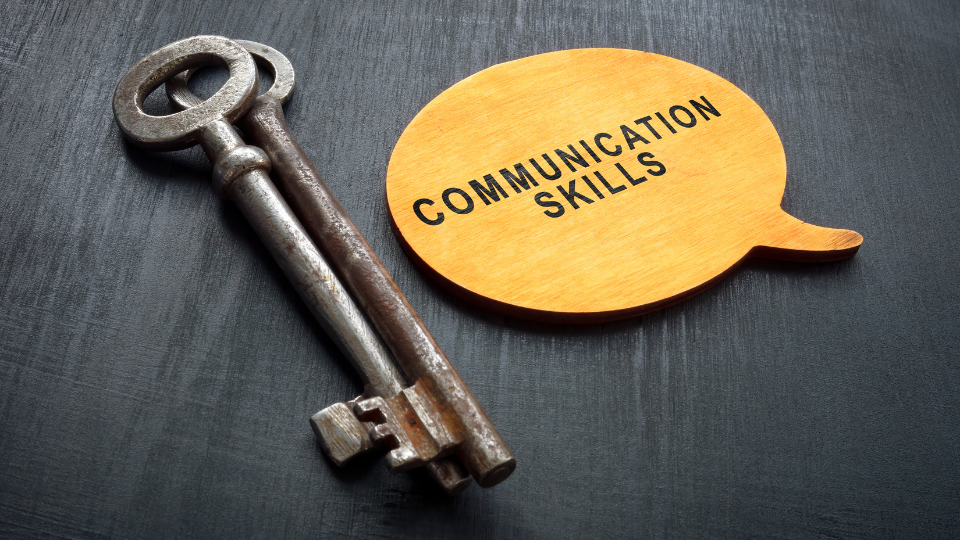In today’s fast-paced world, mastering communication skills has become more crucial than ever. Whether in personal relationships, academic settings, or professional environments, the ability to convey thoughts clearly and effectively can significantly impact success.

This comprehensive review aims to explore why communication skills are important, provide examples of communication skills, and discuss techniques for developing the right skills, ultimately guiding readers toward becoming more proficient communicators. By examining its benefits, the common pitfalls faced by graduates, and the specific communication skills needed especially for students and graduates, this review will provide valuable insights for anyone looking to improve their communication abilities.
Communication skills are important because of their role in establishing effective relationships in both personal and professional settings. They serve as the backbone of collaboration, enabling individuals to share ideas, express concerns, and work together towards common goals.

In the workplace, strong communication skills can lead to increased engagement and successful collaboration among team members, which ultimately enhances productivity. When employees feel heard and understood, their morale improves, fostering a positive work environment that encourages loyalty and reduces turnover rates.
Good skills in communication can mitigate conflicts, as they enable individuals to articulate their concerns and negotiate solutions amicably, thus promoting a healthier environment. Misunderstandings can lead to unnecessary conflicts, which can disrupt team dynamics and hinder progress. By mastering these skills, individuals can convey their thoughts clearly and listen actively, minimizing the chances of misinterpretation and fostering trust among colleagues.
Communication skills encompass a wide range of abilities that facilitate effective interaction between individuals, including verbal, non-verbal, written, and interpersonal skills.
Verbal communication skills encompass the use of spoken or written words to convey thoughts, ideas, and emotions. This form of communication is essential in both personal and professional settings, as it allows individuals to express themselves clearly and effectively. On the other hand, non-verbal skills involve the transmission of messages without the use of words, including body language, facial expressions, gestures, posture, and eye contact.
Among the most vital skills in communication is active listening, which involves fully concentrating on the speaker, understanding their message, and responding thoughtfully. This skill not only fosters better relationships but also enhances collaboration in both personal and professional settings. Active listening shows respect and fosters a deeper connection, making the communication more meaningful.
Additionally, adapting your communication style to suit your audience is crucial; whether you’re speaking to a group of peers or a diverse audience, tailoring your message can significantly enhance understanding and engagement.

One of the most effective techniques for communication skills development is active listening, which involves fully engaging with the speaker, understanding their message, and responding thoughtfully. This not only shows respect but also fosters a deeper connection, making the communication more meaningful. Seeking regular feedback from peers or mentors provides valuable insights for improvement and continuous growth.
Tailoring communication to suit different audiences significantly enhances understanding and engagement. Whether addressing peers, a professional team, or a diverse audience, adapting your communication style ensures your message is well-received and impactful.
Being clear and concise in your speech can significantly reduce misunderstandings. Avoiding unnecessary jargon and opting for straightforward language ensures that your message is comprehensible to your audience.
Another powerful technique is role-playing, which allows individuals to practice their communication skills verbal, and non verbal in a safe environment. By simulating real-life scenarios, participants can experiment with different approaches, receive constructive feedback, and refine their techniques. This practice not only strengthens their skills in communication but also builds confidence for real-world interactions.
Improving communication skills is a multifaceted endeavor that requires dedication and practice. Being mindful of non-verbal cues such as body language, facial expressions, and eye contact plays a significant role in how your message is received. Practicing self-awareness in these areas helps convey confidence and openness.
Preparing ahead of time for conversations or presentations can bolster your confidence and clarity. By anticipating questions and formulating your thoughts, you can engage more effectively and leave a lasting impression.
Ultimately, the key to mastering the right skills in communication lies in continuous practice and a willingness to learn from each interaction. Actively listening, preparing for conversations, and reflecting on performance help in continuous growth.

Good communication skills benefits in fostering trust and build stronger relationships, whether in personal interactions or the workplace. By enabling individuals to articulate their concerns and listen actively, these skills enhance collaboration and problem-solving, which are critical for personal growth and building confidence.
In a professional context, strong skills in communication are linked to increased job satisfaction and improved productivity. Employees who communicate effectively are more engaged and motivated, leading to higher performance levels.
Additionally, organizations benefit from enhanced client relations, as clear communication helps in understanding client needs and expectations, ultimately resulting in better service delivery. A culture of open communication also encourages innovation and problem-solving, which are crucial for achieving organizational goals.
In today’s competitive job market, communication skills lacking among graduates often include deficiencies in both verbal and non-verbal communication skills. Employers frequently note challenges in articulating ideas, interpersonal communication, and crafting coherent emails or reports.

Addressing these lacking among graduates is crucial for enhancing employability and success in professional environments. Practical training in written communication, role-playing for interpersonal scenarios, and seeking mentorship can significantly help graduates refine these skills and bridge the gap.
Communication skills are crucial for students and graduates as they navigate their academic and social environments. These skills enable students to connect with peers, express their thoughts clearly, and engage in meaningful discussions. For PhD students, strong communication abilities are especially vital during proposal defenses, as they must present their research effectively, articulate complex ideas, and respond confidently to committee questions.
To develop communication skills for students, educators can implement strategies like teaching effective listening, encouraging proper word choice, and promoting teamwork through collaborative projects.
In conclusion, mastering the right skills in communication is an essential aspect of personal and professional development. The ability to convey thoughts clearly and effectively can significantly impact relationships, career advancement, and overall success. By understanding the examples of communication skills, benefits, and development techniques, individuals can cultivate strong communication abilities that will serve them throughout their lives. Investing in these skills is imperative for thriving in today’s interconnected world. For additional tools to enhance your personal and professional growth, explore smart study techniques and strategies, which can complement your communication skills journey.